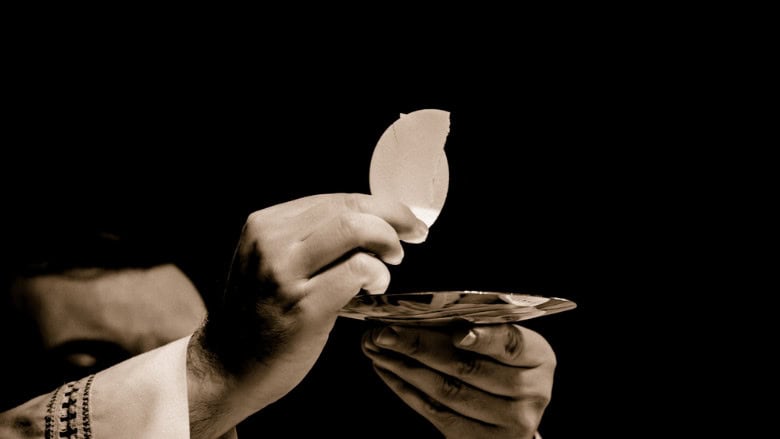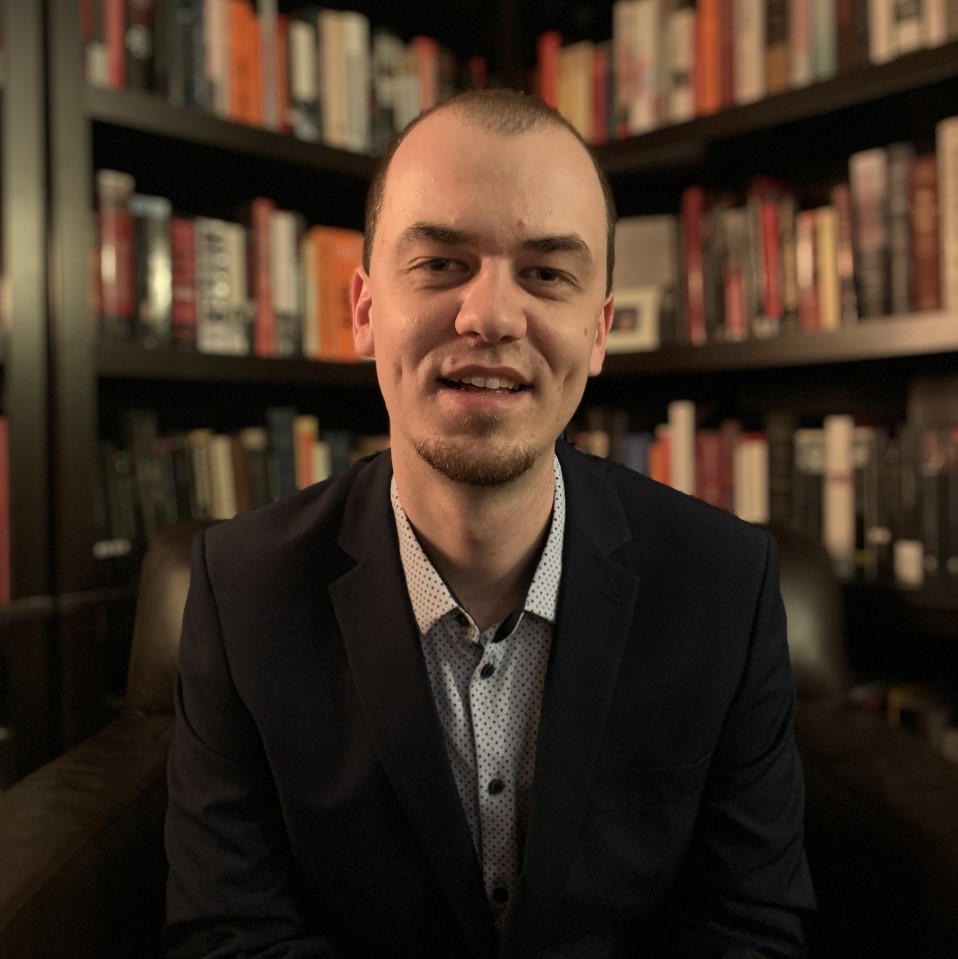
(Stockphoto – Canva)
By Dan Sherven
This series of reflections is based on Bishop Robert Barron’s The Mass. Watch Bishop Robert Barron’s The Mass through Word on Fire Catholic Ministries. Read the first article in this series here.
Our Enlightenment inheritance is to think that our reason is better than our faith. It’s a sign of the times to try and rationally dissect the Trinity or the miracle of the Eucharist. Perhaps the point of both of these things, in a sense—is that God wants us to trust Him rather than reason about Him.
Many Protestants hold that the Eucharist is only a symbol. The Eucharist is a symbol, but it participates in a greater Reality. It is both; it is not only a symbol but also symbolic. Maybe that is where much of the confusion around the ‘real presence’ of Christ comes from. The Eucharist is a symbol of Christ’s body and blood, and it also really is His body and blood. The Eucharist is a symbol, which is the Reality it symbolizes.
Also, angels are present at Mass. However, people tend to think of angels as heavenly human beings with wings. Yet the work of Orthodox thinker Jonathan Pageau, drawing on the Church Fathers, points to angels and demons as intelligences. Angels and demons are spirits without a body. That is why there is always something seriously lost when angels are represented as human bodies.
There’s no better visual solution because one is trying to represent something that exists only in the spirit and does not have a body. In the end, given our intelligence, people are the closest created creatures to angels. But angels and demons are better thought of as intelligences which influence us. Angels and demons aim to have humans be their bodies. In this light, a good idea could be seen as angelic, and a deeply sinful idea demonic, but there is no outside human figure involved in bringing either idea to a person’s attention.
In terms of spiritual reality breaking into physical reality, Psalm 85 states that “Truth will spring from the earth.” Christ says in the Gospel of John: “I am the Way, the Truth, and the Life.” Christ is the Word or the Logos, the Truth Who springs from the earth. The Christian revelation is that the Truth is a person, Jesus Christ. Author Matthieu Pageau notes that in Biblical cosmology, the word ‘earth’ means material reality. So again, Psalm 85 points to Christ. Seeing as Christ fully takes on the matter of the created world, in becoming Man, to save us.
We also have reflections from Thomas Merton, the Catholic writer who was influenced by Buddhism and Daoism. He mentions how language can only have meaning because there is silence between the words. Merton is thinking of the great silence one experiences in the Mass. And he says that during Mass, we hear the Divine Mercy in that silence.
Merton writes elsewhere that the Dao is the Spirit of God. Vatican II notes that other world religions have “rays of truth in them.” And the Dao is often described as water. So, the Holy Spirit could also be described as water. Considering that the Spirit is the eternally flowing source of life. We flow in the Spirit. Knowing not where the Spirit comes from, nor where It goes.
We are given a great emphasis on being rather than doing. That includes the story of Martha and Mary, two sisters whom Jesus visits. Mary is busy cleaning and organizing things in the house. She somewhat scolds Martha, who is simply sitting in the presence of Christ. Yet Jesus approves of Martha’s still approach. As Psalm 46 reminds us, “Be still and know that I am God.”
There’s mention of Saint John Paul and his idea that a person has to be before one can do. Again, harkening to Psalm 46. Yahweh is the Hebrew verb to be. Because when God reveals His name to Moses—after Moses takes off his sandals, which would be used for working, God says His name is “I AM.” God is the Existing One on which all subsequent existence is dependent. We are called to sit and be still before I AM.
That’s the essence of play—to be still—then become more to be rather than to do. Bishop Barron notes how the Mass is the most useless activity, which is to say that Mass is the highest activity because Mass is pure play. It is not sacrificial work that is done for a secondary purpose, such as to gain money. Instead, Mass is done for itself, as all great play is. “Heaven is a playground,” says the Catholic writer G.K. Chesterton.
Integral to play is the idea of encountering Christ. We are given a quote from Pope Benedict XVI before he became Pope, so he was then Cardinal Joseph Ratzinger. In 2005, at the funeral of Luigi Giussani, who was the leader of the liturgical reform movement, Ratzinger said: “Christianity is not an intellectual system, a collection of dogmas, or a moralism. Christianity is instead an encounter, a love story, an event.” Christianity is primarily a relationship with Jesus.

Dan Sherven is the author of four books, including the number one bestseller Classified: Off the Beat ‘N Path and Uncreated Light. Sherven is also an award-winning journalist, writing for several publications. Find Sherven’s work.

